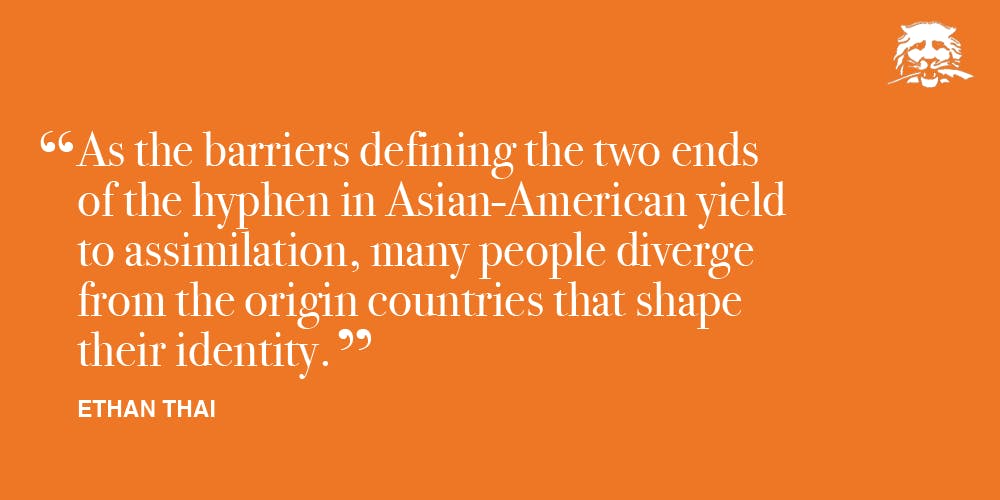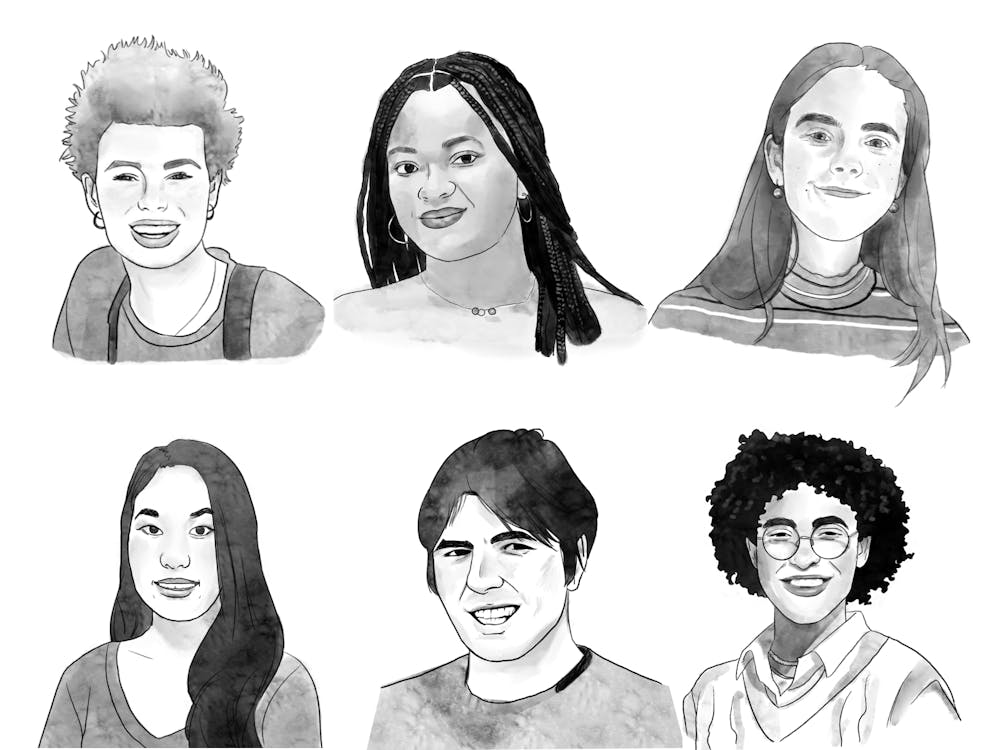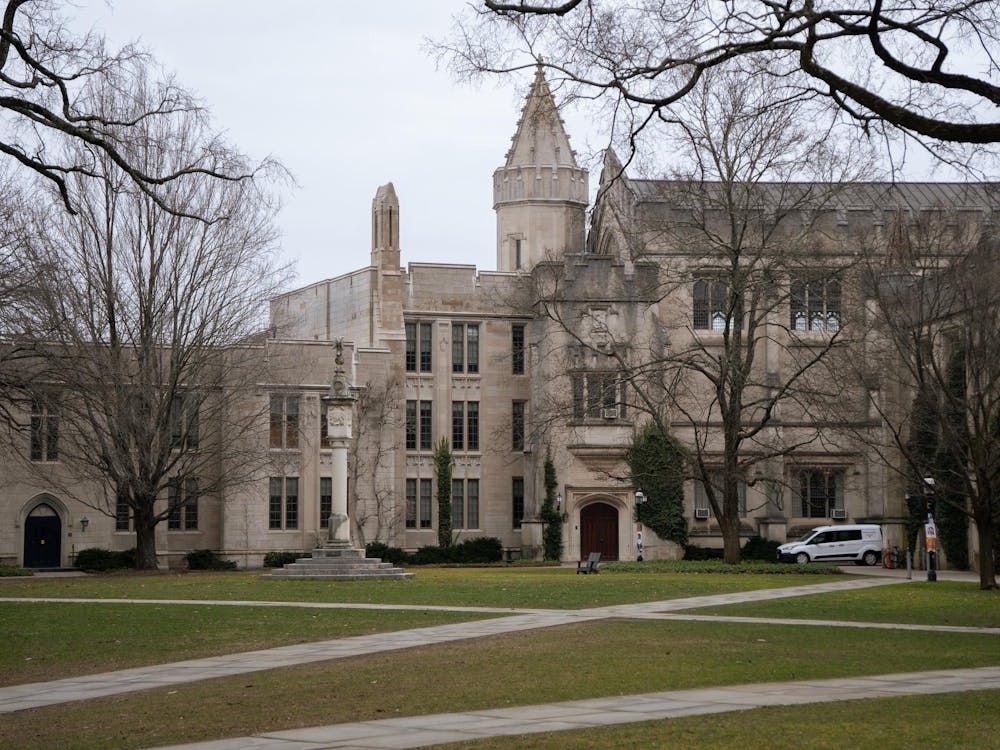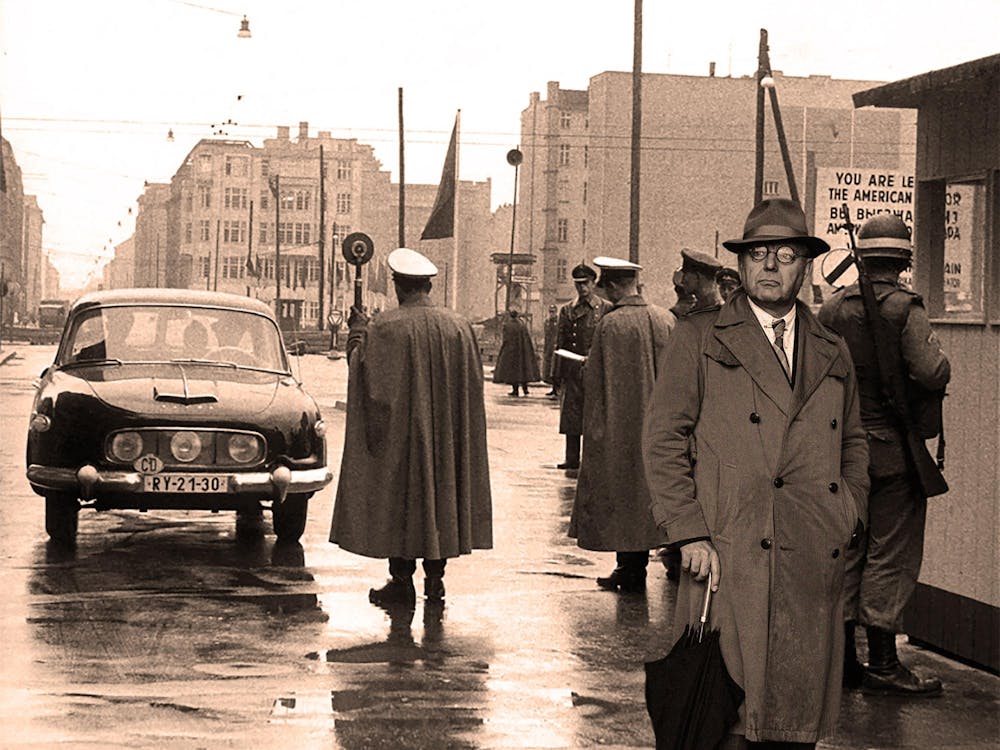As I walk through the tourist-heavy north side of campus, there’s always a decent chance that my ethnic identity will invite people to speak to me in languages that I am unable to understand. The interaction typically starts with an inquisitive remark in a foreign language and ends in an embarrassed shake of my head. Every once in a while I get a pitiful laugh in response and a look that implies, “It’s a shame that he can’t even converse with his own culture.”
I am the son of a Vietnamese father and Indonesian mother. My complexion displays languages I cannot speak; my features, lands I have never walked. Despite the fact that both of my parents are immigrants, English is the only language that flows over our dinner table. I could point out their home nations on a map, but ask me anything beyond wikipediable information and I would be at a loss. The most defining label I have, my first and middle names, Ethan Henry, is devoid of reference to the culture and traditions of my ethnicity.
Of course, my story is veiled behind my appearance, which speaks another tale entirely. In a society fastened to the association of ethnicity and ideals, the only expectation I can fulfill on first glance is one based off my Southeast Asian image and assumed heritage. Between my visiting relatives expressing their surprise at my cultural unawareness to new friends noting my “Westernization,” I exist within the conflict of my presumed heritage and true identity.
Heritage has traditionally played a significant role in the construction of identities, histories, and customs of ancestors transcribed into a person’s actions and appearance. The foods that compose a typical dinner, the religion that constitutes one’s faith, and the languages that shape one’s words are all usually attributed to what has been passed down from our predecessors. However, in a land constructed by immigrants and interwoven with diversity, backgrounds of all types have mixed to produce a wealth of new meanings and effects of heritage. This ever-changing understanding and impact of ancestry has created a complex relationship between the mold of identity and the guidance of heritage.
As the barriers defining the two ends of the hyphen in Asian-American yield to assimilation, many people diverge from the origin countries that shape their identity. Cultural traits and established practices are lost in the translation from East to West. Have we severed our ties to our heritage?
Despite this disconnect between homeland and character, heritage continues to influence my life and the values I try to embody. This is because heritage is a connection that envelops more than the cultural remnants of a departed country. Rather, it encompasses a set of beliefs and principles that were forged by the experiences of my ancestors.
Both of my parents were thrust into an environment of unfamiliar cultures, devoid of people similar to them. My mother grew up in a small Ohio town. Her family left behind a life of comfort and stability and the discrimination my grandfather faced as a Chinese Christian in Indonesia for greater economic opportunities and religious freedom. My dad and his family fled an uncertain future in rising communist Vietnam. They were thrown from ship to ship and island to island before finding a foster home in the heart of Massachusetts.
While my father never imposed the traditional means of addressing him and other elders upon me, the ideal of respect was passed through his unceasing work ethic and caring authority. My grandmother had never taught me Indonesian, but the story of her arguing for discounts on bruised fruit at the grocery store to save a few precious dollars showed me the importance of frugality. I may not be able to pronounce or even identify half the dishes my father’s parents make, but their experience of surviving off rations at an Indonesian refugee camp following an escape from Vietnam instilled the importance of always ending a meal with an empty plate. Neither of my parents enforced the strict family structure they had both grown up in, but the understanding of being in a land they could not call their own and among people they could not relate to drew the paramount significance of family. That is my heritage and the foundation for my identity.
As we celebrate a multitude of cultures this Asian American Heritage Month, let us not forget that heritage itself embraces not only traditions instilled but also stories created. While I may not have a strong affiliation to the customs of my family’s homelands, the values formed by my ancestors in and out of those cultures have shaped who I am today.
Ethan Thai is a first-year from Chandler, Ariz. He can be reached at ehthai@princeton.edu
Editor’s note: This month, the United States observes Asian Pacific American Heritage Month. If you would like contribute to this month-long conversation about Asian-American and Pacific-American culture, please email opinion@dailyprincetonian.com.










